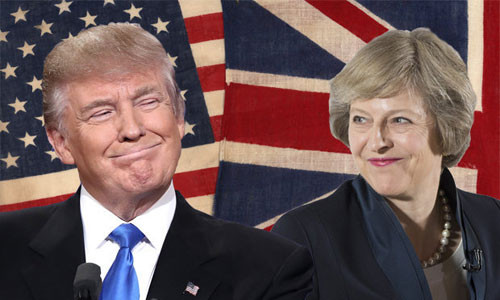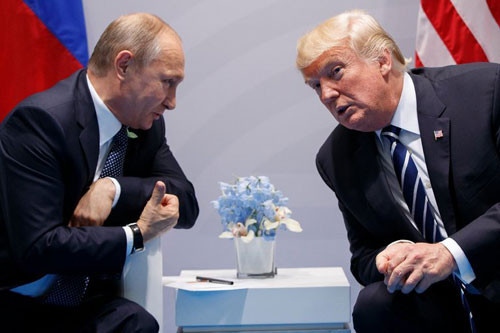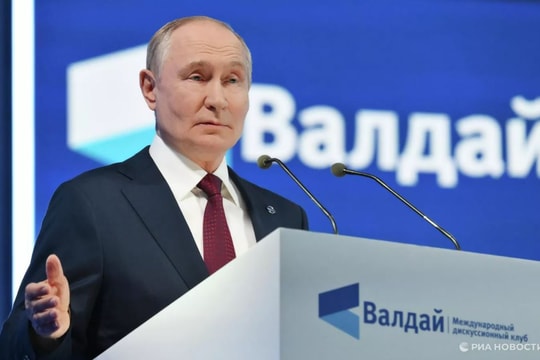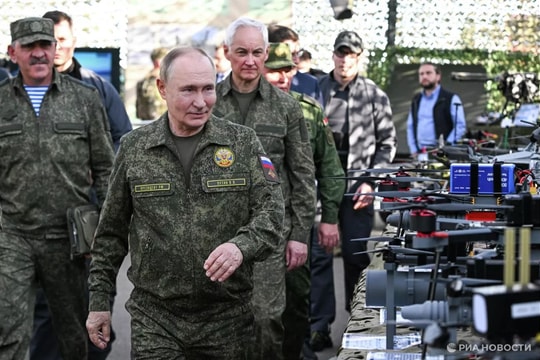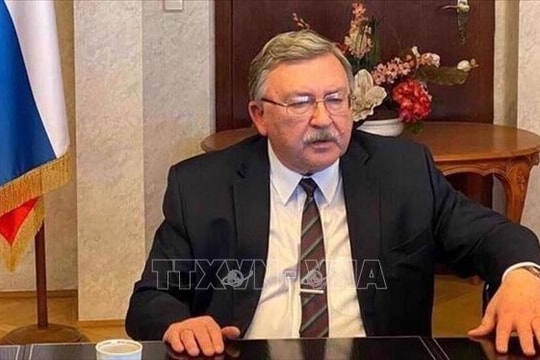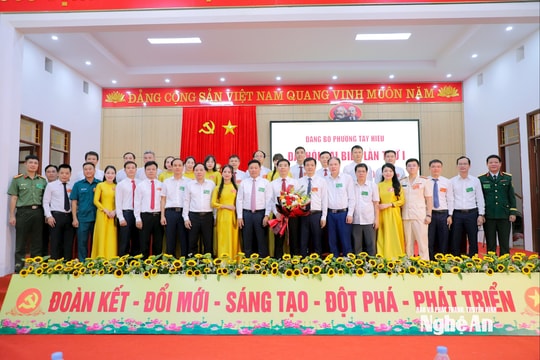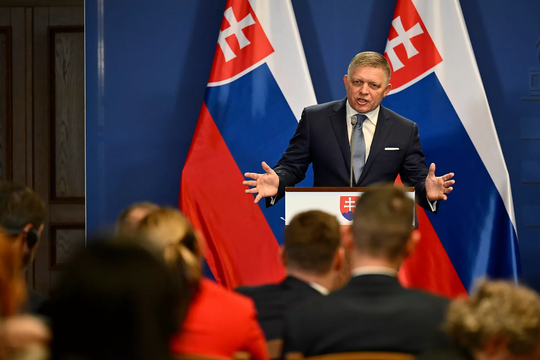Causes and consequences of the West's 'coalition attack' on Russia
The decision by the US and its European allies to expel a large number of Russian diplomats could spark global tensions.
|
The US and its European allies are carrying out the biggest diplomatic response since the Cold War against Russia. Photo:AOL. |
The United States and 22 European allies have just expelled more than 100 Russian diplomats in what is considered the largest "retaliatory strike" ever against Moscow's alleged involvement in the poisoning of former intelligence colonel Sergei Skripal in the UK, according toBBC. This move is expected to create the most serious diplomatic crisis between Russia and the West since the annexation of Crimea.
According to BBC commentator Jonathan Marcus, this is considered a diplomatic victory for British Prime Minister Theresa May, who has always accused Russia of being behind the assassination that left former spy Skripal and his daughter critically ill from nerve agent in Salisbury on March 4. London asked Moscow to give an explanation, but the Kremlin ignored it and declared that Russia had nothing to do with the poisoning.
The British government then stopped publicly criticizing Russia, but instead sought to rely on multilateral forums such as the European Union (EU), NATO, the United Nations and the Organization for the Prohibition of Chemical Weapons (OPCW) to present evidence and strengthen its accusations.
Mrs May’s policy of patience finally paid off. More than three weeks after the poisoning, Britain’s allies accepted London’s view that the use of the military-grade nerve agent Novichok in the Salisbury assassination was “highly likely” to have been carried out by Russia.
Donald Tusk, the EU president, said the decision to expel the Russian diplomats followed a meeting last week on the Salisbury poisoning, warning that "further expulsions within the EU framework cannot be ruled out in the coming days and months".
The US State Department said the decision to expel 60 Russian diplomats was a result of "an attack on a British ally that put innocent lives at risk and seriously injured three, including a police officer."
A Trump administration official said the move would make America safer "by reducing Russia's ability to spy on Americans and its ability to conduct covert operations that threaten U.S. national security."
According to Marcus, this record-breaking mass expulsion since the end of the Cold War is a significant show of solidarity between the US and EU members with the UK, especially in the context of the UK's relationship with the EU becoming tense because of Brexit negotiations.
This commentator believes that this is a collective response from the West with a level of unity that Russian President Vladimir Putin did not expect. Russia has long considered Britain a weak and increasingly isolated country, while the EU is divided and US foreign policy is influenced by President Donald Trump's Russia-friendly stance.
This proves that Putin has made a serious mistake and it also shows that the US administration under Mr. Trump has made a major change in foreign policy, especially when the White House is witnessing a huge change in personnel with CIA Director Mike Pompeo becoming Secretary of State and hawkish politician John Bolton being appointed as the new National Security Advisor.
Observers say that new US Secretary of State Pompeo is certainly no stranger to Russian intelligence and espionage activities after his time in power at the CIA, while Bolton has long supported Washington taking a tougher stance towards Moscow.
Impact
Commentator Robin Wright ofNew YorkerSome say the mass expulsions are a strong message from the West to Mr Putin that Russia cannot attack one of its allies without facing retaliation from the rest.
However, analysts say that expelling diplomats is always a double-edged sword. When the US expels Russian diplomats, Moscow can also respond by expelling Washington's embassy and consulate staff, leading to both sides losing influence.
The US said it dealt a blow to Russia’s intelligence capabilities by closing its consulate in Seattle, which is home to a US Navy submarine base and a Boeing aircraft factory. The US expulsion of 12 Russian diplomats from the UN mission in New York could also affect Russia’s intelligence operations, according to the US State Department.
Overall, Russian intelligence will be the worst hit by the West's response to the council, with a "generation of Moscow spies" likely to have been expelled from embassies across Europe, according to BBC commentator Paul Adams. "This will make it much harder for Russia to gather intelligence and recruit spies, at least in the immediate future," Adams said.
However, US citizens will also be affected by this retaliation. Americans seeking visas to Russia will now have to travel further afield with the Seattle consulate closed, following the closure of the Russian consulate in San Francisco in August 2017 following the expulsion of 755 US diplomats.
|
Russian President Putin (left) and US President Trump at a meeting in 2017. Photo:Reuters. |
Michael McFaul, a former US ambassador to Russia, said targeting Russian spies might be justified, but closing the Russian consulate would be counterproductive. “The main ones who will suffer are US citizens who want to apply for visas to come to Russia,” McFaul said. “I don’t think it’s a good idea to limit contact between Russians and Americans.”
The mass expulsions also dashed hopes for improved relations between Russia and the US, which had been fueled by President Trump's call to congratulate his counterpart Putin on his re-election last week.
“This is the end of a long-cherished fantasy of a grand bargain with Putin that Mr. Trump has cherished,” said William Burns, president of the Carnegie Endowment for International Peace.
Russian Ambassador to the US Anatoly Antonov called this a "provocative" action by the US and emphasized that "There is very little left in Russia-US relations". Russia then also posted on Twitter to poll opinions on closing US consulates in this country.
Response
Paul Saunders, an expert at the US Center for the National Interest, said Russia would certainly not be convinced by the West's excuse for imposing large-scale sanctions. The Russian Foreign Ministry affirmed that Britain had not provided any evidence that Russia had used Novichok in the Skripal poisoning.
Saunders said the decision to expel Russian diplomats en masse would only be justified if Washington could prove that Moscow had carried out the poisoning, rather than relying on London's "high probability" accusation. "I believe Russia is the most likely suspect, but there is a big difference between suspicion and proving an allegation," he said.
Therefore, many experts believe that Russia has reasons to respond to this action of the West. Moscow's response measures could trigger the risk of a full-scale confrontation in global hotspots where Russia's interests conflict with the West, such as on the battlefield in Syria.
Tensions between Russia and the West will likely escalate into a "reinforced Cold War," at least in the short term, according to Nina Khrushcheva, granddaughter of former Soviet leader Nikita Khrushchev and a lecturer at the New School in New York.
"Putin always wants to gain the upper hand and never gives up. He does not back down. He will find the opponent's weak point to launch a counterattack 10 times stronger than what he just suffered," Khrushcheva commented.
Russia could launch more aggressive countermeasures against the West, such as withdrawing from international agreements, restricting the activities of foreign businesses, expelling more diplomats and even foreign journalists. “Putin’s thinking is that Russia will always be strong, even if it is sanctioned by the West, even if it is in trouble,” Khrushcheva said.
Matthew Rojansky, a Russia expert at the Wilson Center, warned that Russia could take further retaliatory measures beyond expelling US diplomats. "The risk of escalation is not just tit-for-tat measures," he said. "Moscow could take more aggressive actions in cyberspace, or on the battlefields of the Middle East."
"Between Russia and the West it is now a game of challenge in which neither is willing to give in," said veteran American diplomat Tom Pickering.
But some experts say that if the diplomatic crisis drags on, Putin will have to rethink his strategy. Russia is facing economic difficulties, and its costly military intervention in Syria makes it difficult for Moscow to continue another Cold War with the West, according to William Taylor, a former US ambassador to Ukraine.

